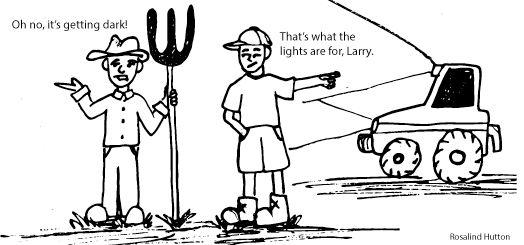Seeing as 2018 is the centennial of Daylight Saving Time in America, I believe now is the perfect time to discuss its future or, more appropriately, its lack thereof.
DST is, at best, a cost-neutral timing concept which creates one disappointing morning in the spring and one extra hour of bliss in the fall. However, in the modern age, it serves little purpose beyond boosting several industries and increasing pollution.
To better understand why DST is here in the U.S., it helps to understand the origins of its establishment. According to Ethan Siegel with Forbes, Benjamin Franklin first proposed the practice as a way to preserve candle wax, and the assumed justification has just slowly evolved to saving energy, in general.
However, as the same article points out, there are conflicting studies as to whether DST achieves any statistically significant energy conservation. The New York Times’ Daniel Victor reports the Department of Energy found in 2008 DST’s recent 2005 change had saved about 0.5 percent of total electricity usage per day. However, Yale economist Matthew Kotchen found Indiana’s 2006 statewide institution of DST had a one percent increase in usage, costing about $9 million to consumers.
Another interesting development in the myths of DST is the assumption it helps farmers, but in fact, farmers have long opposed DST. Animals have a peculiar aversion to respecting the more metaphysical aspects of modern society, and our regulation of time is certainly an example.
Domesticated farm animals continue to follow their natural clocks, which means farmers follow suit, and DST only further interrupts the process. Farmers were vehemently opposed to DST after its first institution in 1918, and they were instrumental in its original national repeal in 1919. Unfortunately for our farmer folk, some states retained the concept, and the ensuing chaos caused by the various time discrepancies caused Congress to reinstitute centrally controlled DST in 1966 with the Uniform Time Act.
So far, DST is quite unimpressive in its benefits, yet it continues to be extended. The main culprit to blame for this conundrum is the economic effect DST has on several prominent industries. Michael Downing, author of “Spring Forward: The Annual Madness of Daylight Savings Time,” explained the various influential industries’ desire to continue DST to Mother Nature Network.
“Daylight saving is still a boon to purveyors of barbecue grills, sports and recreation equipment and the petroleum industry, as gasoline consumption increases every time we increase the length of the daylight saving period. Give Americans an extra hour of after-dinner daylight, and they will go to the ballpark or the mall—but they won’t walk there,” as reported by Benyamin Cohen of the Huffington Post.
Referring back to Victor’s take, he reports Jeff Miller, former chairman of the Association for Convenience and Fuel Retailing, said in 2010 the gas station industry had gotten an estimated $1 billion in additional annual sales since the 1986 extension of DST.
However, the effect is not positive on every industry. Returning to the previously mentioned Forbes article, the television and transportation industries are both harmed by the change in schedule.
DST is just plain annoying, and it does not earn its right to exist. I would settle if DST did somehow help farmers or did actually save a significant amount of energy, but neither cases have factual basis, or at least not consistently.
Why, then, must I be subjected to one terrible spring morning and one minutely more rested fall? If the best argument is, “It helps the gasoline, golf and baseball industries,” I think they will just have to suck it up, for DST is not even net positive in these respect. I can conserve my candle wax just fine on my own, and I would prefer if my clock was consistent.
Categories:
Daylight Savings is not saving anything

Daylight Savings is not saving anything
About the Contributor

Dylan Bufkin, Former Editor-in-Chief
Dylan Bufkin served as the Editor-in-Chief of The Reflector from 2020 to 2021.
He also served as the Opinion Editor from 2019 to 2020.
0
Donate to The Reflector
Your donation will support the student journalists of Mississippi State University. Your contribution will allow us to purchase equipment and cover our annual website hosting costs.
More to Discover






